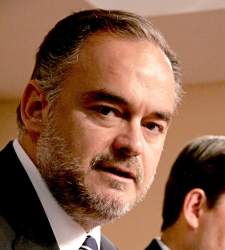The United Kingdom government has dismissed a request from Spain’s Prime Minister, Mariano Rajoy, for a return to bilateral discussions on matters relating to Gibraltar under an agreement dating back to 1984.
Under the previous administration in Spain, Gibraltar and the UK had made significant progress on contentious issues surrounding Gibraltar’s sovereignty after more than a century of fractious relations. Through the trilateral forum, the three governments engaged on maritime border issues, customs policy and, critically, on tax information exchange. It was hoped that through the signing of a bilateral tax information exchange agreement, Spain would in turn recognize Gibraltar’s status as a transparent, highly-regulated international financial centre, lawfully independent from the United Kingdom.
However, in its election manifesto, the People’s Party, which took office this year, said it would seek to undo the work of the previous government and aim to restore the idea of ‘Two Flags (the United Kingdom and Spain), Three Voices’. This approach would remove Gibraltar’s power of veto over discussions pertinent to the territory and force it to mediate issues with Spain through the United Kingdom, under the terms of the 1984 Brussels Agreement.
Speaking at the General Assembly of the United Nations on September 25, Rajoy called for the United Kingdom to agree to a reset, and the resumption of negotiations under the Brussels process.
In a move welcomed by the Gibraltar government, the UK responded however that it would “not engage in any discussions about Gibraltar that the Gibraltarians don’t want to engage in”.
The Gibraltar government underscored that it had “already made clear that talks under the Brussels process are unacceptable to the government and to the people of Gibraltar”, and expressed hope that with the UK’s backing the matter would be put to rest.
“Gibraltar enjoys a veto on the resumption of bilateral discussions about Gibraltar and that is the end of the matter,” the Gibraltar government stated. “The only dialogue acceptable to the people and government of Gibraltar is a trilateral process, to which Gibraltar and the UK remain strongly committed.”
Article source: Investors Offshore.com

